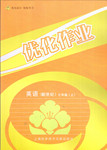题目内容
I think it was my mother who taught me the meaning of honesty. Not because she actually was honest, but because she lied all the time. She felt that the easiest way out of any given situation was generally the best way out. And, for her, that generally meant telling a “little white lie.” As a young child I thought it was kind of cool. And, naturally, when I would come to her with a concern or question wondering what I should do, she generally advised me to lie.
“Mom, I told Theresa that I would go over to her house, but now I would rather go to Sue’s house to play.”
“Tell Theresa you’re sick,” she would advise. And generally I did. But I didn’t seem blessed with her lack of conscience. On many painful occasions Theresa would find out that I really went to Sue’s house without her. These occasions taught me that it is more painful to be caught in a lie than it is to tell the truth in the first place. I wondered how it was possible that my mother had never learned that lesson.
I started thinking of all the lies that I’d heard her tell. I remembered the time she told someone that her favorite restaurant had closed, because she didn’t want to see them there anymore. Or the time she told Dad that she loved the lawn-mower he gave her for her birthday. Or when she claimed that our phone lines had been down when she was trying to explain why she hadn’t been in touch with a friend of hers for weeks. And what bothered me even more were all the times she had involved me into her lies. Like the time she told my guidance counselor that I had to miss school for exploratory surgery, when she really needed me to babysit. And it even started to bother me when someone would call for her and she would ask me to tell them that she wasn’t there.
So, I started my own personal fight against her dishonesty. When I answered the phone and it was someone my mother didn’t want to talk to, I said, “Louise, mom is here, but she doesn’t want to talk to you.” The first time I did it, she punished me, but I refused to apologize. I told her that I had decided that it was wrong to lie. And the next time it happened I did the same thing. Finally, she approached me and said, “I agree that lying is not the best thing to do, but we need to find a way to be honest without being rude.” She admitted that her methods weren’t right, and I admitted that mine were a bit too extreme.
Over the past few years, the two of us have worked together to be honest—and yet kind. Honesty should mean more than not lying. It should mean speaking the truth in kindness. Though I started by trying to teach my mom the importance of honesty, I ended up gaining a deeper understanding of the meaning of the term.
1. The author’s mother __________.
A. thought white lies were not lies
B. helped the author get out of trouble with white lies
C. told the author to lie when in trouble
D. taught the author the importance of being honest
2.The author __________.
A. was thankful to her mother’s advice
B. felt more awkward when being caught lying
C. found that telling the truth hurt more than telling a lie
D. felt guilty when hurting people with her honesty
3.It can be inferred that the author’s mother __________.
A. met her friends in the same restaurant regularly
B. didn’t get along with the author’s teachers
C. was not popular among her friends
D. wanted to have something else for her birthday
4.Finally the author and her mother agreed that __________.
A. kind-heartedness is more important than honesty
B. appropriate methods are the key to telling a good lie
C. honesty is defined as kindness as well as truthfulness
D. absolute honesty is basic to good interpersonal relationships
1. C 2.B 3. D 4. C
【解析】

 培优三好生系列答案
培优三好生系列答案 优化作业上海科技文献出版社系列答案
优化作业上海科技文献出版社系列答案